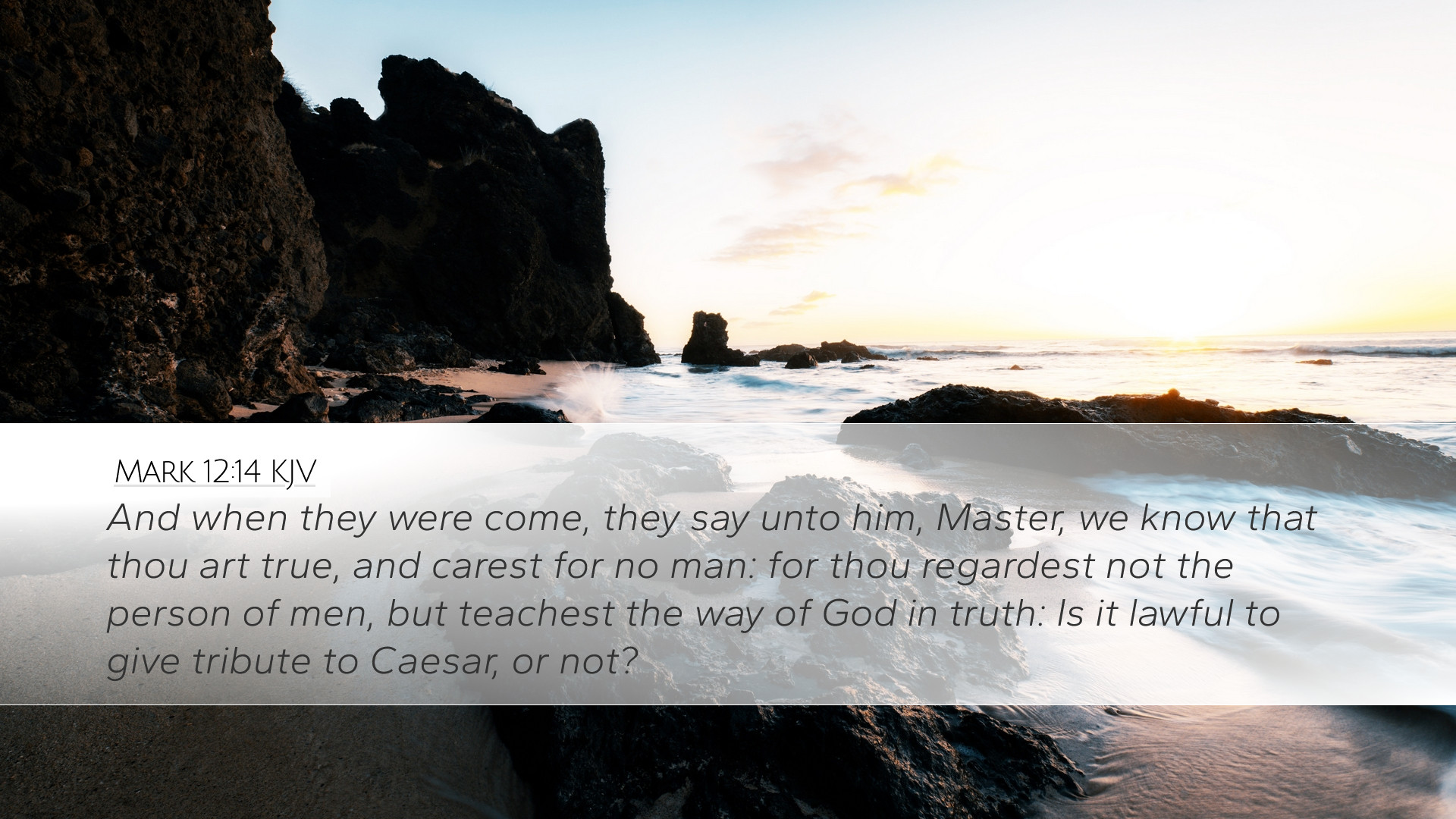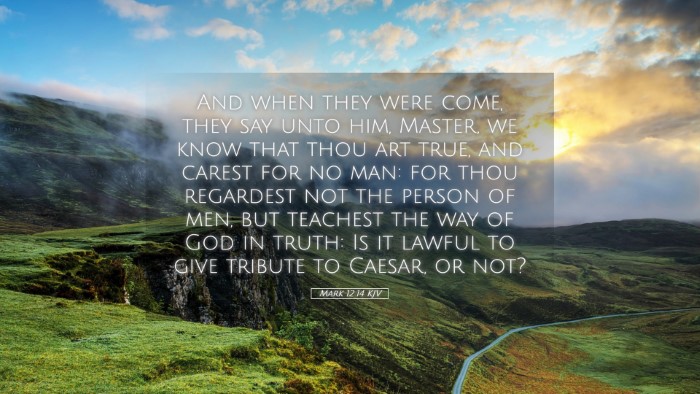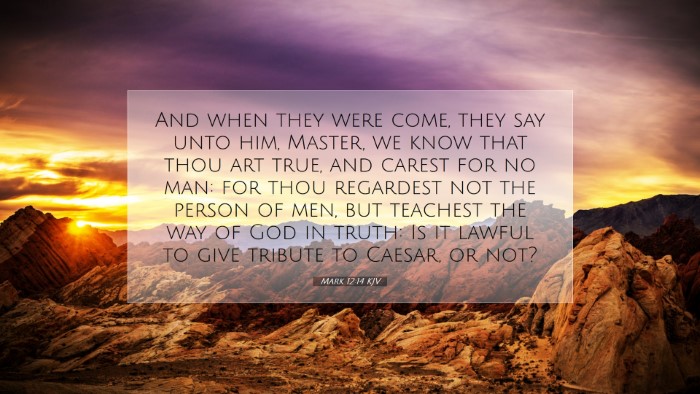Commentary on Mark 12:14
Key Verse: "And when they were come, they say unto him, Master, we know that thou art true, and carest for no man: for thou regardest not the person of men, but teachest the way of God in truth: Is it lawful to give tribute to Caesar, or not?"
Introduction
The passage of Mark 12:14 presents a pivotal moment in the ministry of Jesus as it addresses the political and social tensions of His time. The Pharisees and Herodians come to Him with a question designed to trap Him. This pericope demonstrates the interplay between faith and politics and highlights Christ's wisdom and authority.
Contextual Background
Understanding the historical and cultural context of Mark 12:14 is crucial for interpreting this passage accurately. The Jewish religious leaders did not have the autonomy they once enjoyed, being under Roman oppression. The question pertaining to tribute denotes the anxiety over foreign rule, which is compounded by the expectations of a Messiah who would liberate them.
Matthew Henry notes that the inquiry posed to Jesus stems from a desire to corner Him into either siding with the Jewish zealots against Roman authority or aligning with the Roman government, which would alienate Him from the Jewish people.
Analysis of the Text
This verse serves not only as a question but also as a declaration of the character of Jesus. The Pharisees and Herodians commend Him, recognizing His integrity and impartiality. Albert Barnes remarks that the phrase “carest for no man” emphasizes Jesus' fearless approach to truth, unaffected by social or political pressures.
- The Nature of the Question: The proposed question, regarding the lawfulness of paying taxes to Caesar, immediately brings forth several layers of meaning. Is it a question of legality, or is it also a question of loyalty to God versus loyalty to Empire?
- Jesus' Perception of the Intent: The attempt to ensnare Jesus in a legalistic trap reflects their underlying motives; they sought to delegitimize Him. Adam Clarke alludes to the pernicious nature of their approach, suggesting that they disguised their malice under the guise of inquiry.
Jesus' Response
In His reply, though not detailed in this single verse, we know that Jesus asked for a denarius, demonstrating His profound understanding of both the material and spiritual realms. His subsequent statement, “Render to Caesar the things that are Caesar's, and to God the things that are God's,” has garnered extensive theological reflection.
Matthew Henry emphasizes the dual responsibility of believers: to fulfill worldly obligations without compromising their ultimate allegiance to God. This profound statement encapsulates the tension of living in a secular world while holding and practicing faith.
Theological Implications
This passage raises important theological questions about authority and our relationship to governing powers. It invites pastors and theologians to reflect on how believers engage with civic duties while maintaining fidelity to their faith. Notably, Clarke suggests that Jesus did not advocate for rebellion against the government but rather imposed a higher obligation to God's sovereignty.
Furthermore, this instruction to 'render' conveys a significant message about stewardship. Believers are called to manage what is owed both to earthly authorities as well as to God, thus promoting a balanced Christian worldview.
Pastoral Applications
For ministers and church leaders, Mark 12:14 serves as an essential text for teaching about the integration of faith in public life. Pastoral applications may include:
- Encouraging Civic Responsibility: Pastors can motivate congregants to engage in political processes, emphasizing that adherence to the law of the land respects God’s providence.
- Teaching on Righteousness in Political Engagement: Highlighting the importance of integrity and truth in discourse as modeled by Jesus can encourage ethical engagement.
- Addressing the Fear of Government: This text can reassure church members that God remains sovereign above earthly powers, allowing believers to navigate challenging contexts with confidence.
Conclusion
Mark 12:14 stands as a timeless scripture that resonates across socio-political contexts. It challenges followers of Christ to engage faithfully with the world while remaining steadfast in their devotion to God. The insights derived from public domain commentaries enrich our understanding of this passage, offering a comprehensive view that encourages both reverence for God and responsible citizenship.


